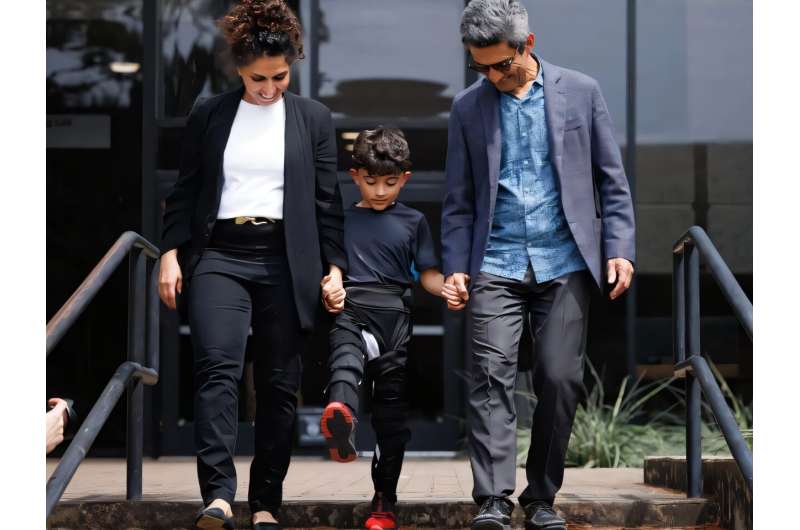Built to help children walk, MyoStep addresses motor impairments that severely restrict children’s participation in physical activities, self-care and academic pursuits, leading to developmental delays, social isolation and reduced self-esteem. It is lightweight, discreet, made of smart materials and wearable technology, and tailored to fit seamlessly into the lives of children and their families.
The MyoStep soft exoskeleton is introduced in IEEE Electron Devices Magazine by a team from the NSF UH Building Reliable Advances and Innovation in Neurotechnology (BRAIN) Center, an Industry–University Cooperative Research Center (IUCRC) and TIRR Memorial Hermann.
“The MyoStep project represents a significant advancement in the field of pediatric mobility aids, particularly for children with cerebral palsy,” said Jose Luis Contreras-Vidal, director of the NSF BRAIN Center, and Hugh Roy and Lillie Cranz Cullen Distinguished Professor of Electrical and Computer Engineering.

